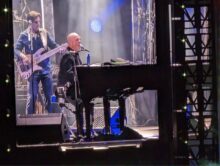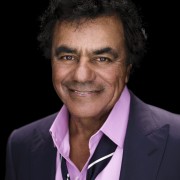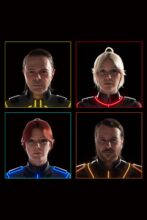Glenn Cornick, the original bassist for Jethro Tull from 1968 to 1970, died in Hilo, Hawaii on Friday August 29 at the age of 67.
No cause of death has been announced; however, the Hawaii Tribune-Herald has implied it was heart failure.
Ian Anderson wrote a tribute on the official Jethro Tull site:
It is with great sadness that we learned today of the passing of Glenn Cornick, bass player with Jethro Tull from the band’s inception 1968 until 1970. Of course, he had also played with the John Evan Band for the year during 1967 and so his contribution to the geographical transition from Blackpool to London and into the professional music scene was considerable.
Glenn was a man of great bonhomie and ready to befriend anyone – especially fellow musicians. Always cheerful, he brought to the early stage performances of Tull a lively bravado both as a personality and a musician.
His background in the beat groups of the North of England and his broad knowledge of music were always helpful in establishing the arrangements of the early Tull.
During the many years since then, Glenn continued to play in various bands and was a frequent guest at Tull fan conventions where he would join in with gusto to rekindle the musical moments of the early repertoire.
We will miss him hugely and our condolences go to his wife Bridgette and children.
Glenn Cornick: musician. April 23rd 1947 – August 29th 2014.
Prior to joining Jethro Tull, Cornick played in a number of bands including Jailbreakers, the Vikings and John Evans’ Smash.
Cornick joined with Anderson’s earlier attempts at forming a cohesive group, along with Mick Abrahams. In late 1967, they added drummer Clive Bunker and started playing British blues.
A booking agent came up with the name Jethro Tull for the group and they started to get return shows at local London clubs. In late 1967, they recorded the single Sunshine Day/Aeroplane with producer Derek Lawrence which was released in February 1968, accidentally credited to Jethro Toe.
In October 1968, the band released their debut album, Time Was, which went to number 10 in the U.K., launching their career. In the U.S., they built their reputation opening a tour for Led Zeppelin and Vanilla Fudge.
Jethro Tull first broke on the U.K. singles chart in early-1969 with Love Story but it was their next single, Living in the Past, that vaulted them worldwide, peaking at 3 in the U.K. and 11 in the U.S. The associated album, Stand Up, was also big, topping the charts in Britain and getting to 20 in America.
With Stand Up, the band found themselves able to headline a tour of the U.S., including playing at the Newport Jazz Festival.
Cornick recorded one more album with the group, Benefit, before he left the band. According to Glenn, Ian Anderson fired him but their press said that he was “invited to leave” by manager Terry Ellis.
Glenn quickly formed the band Wild Turkey who recorded two full albums and supported Black Sabbath on a U.S. tour, but they never got their footing commercially and broke up in 1974.
Cornick joined the German band Karthago for one album before forming Paris with ex-Fleetwood Mac member Bob Welch and Thom Mooney of Nazz. They, too, recorded two albums before breaking up in 1977.
In the mid-90’s, Cornick reformed Wild Turkey, releasing the albums Stealer of Years and, in 2006, You and Me and the Jungle.
In his later years, Cornick lived in Hawaii and played in a local band called Endangered Species.
Cornick is survived by his wife, two sons and a daughter.
more from vvnmusic.com



















